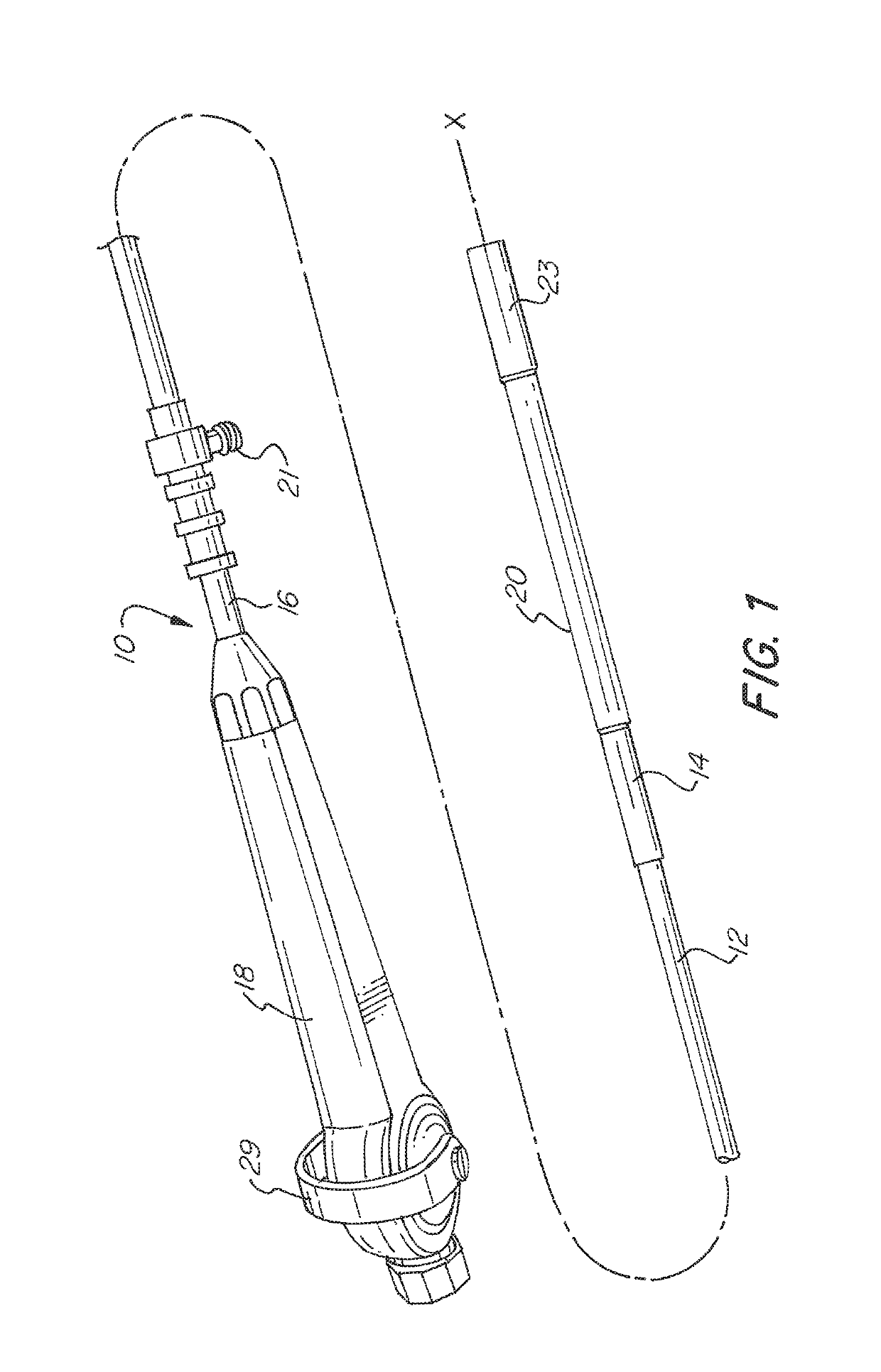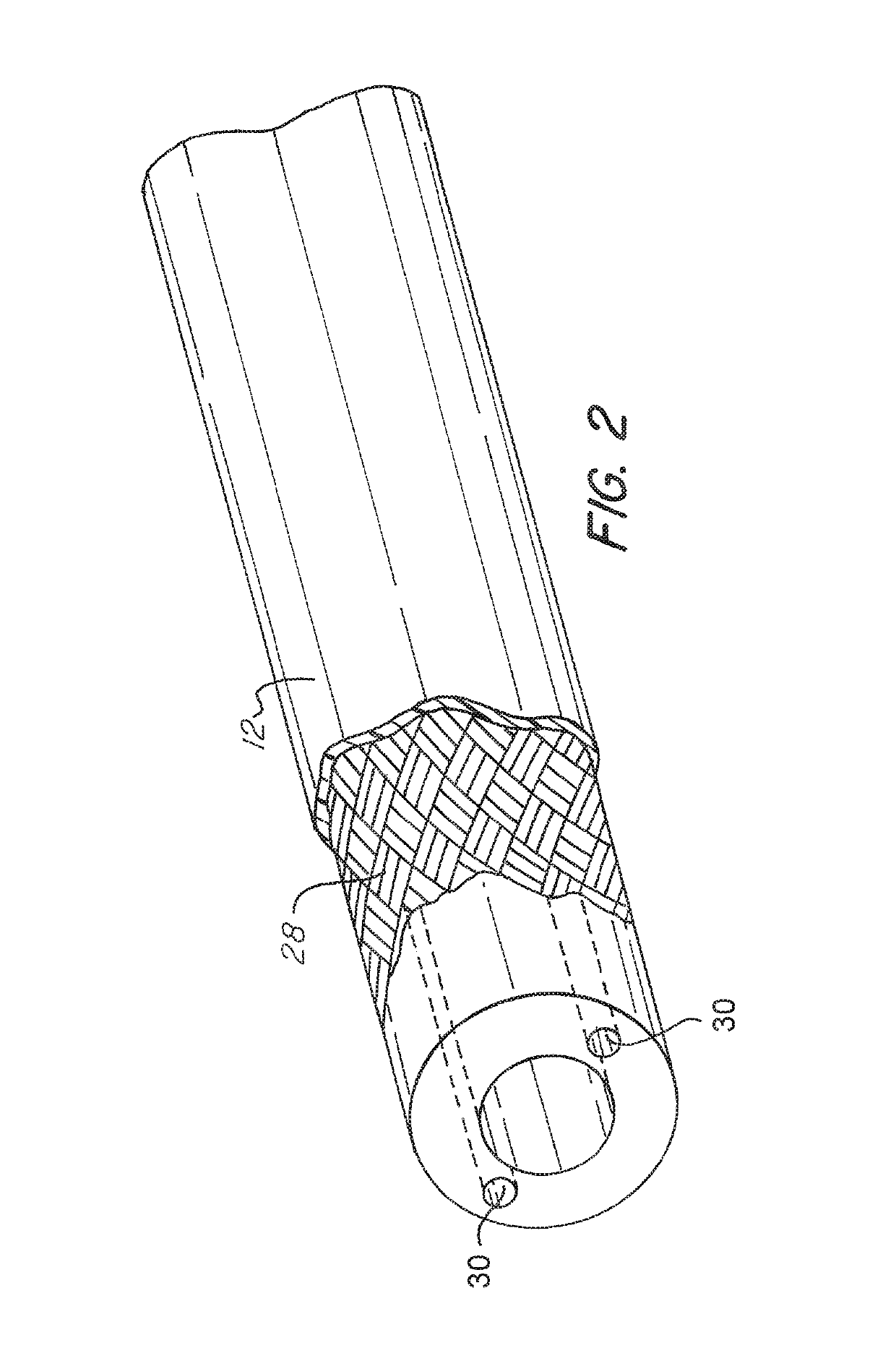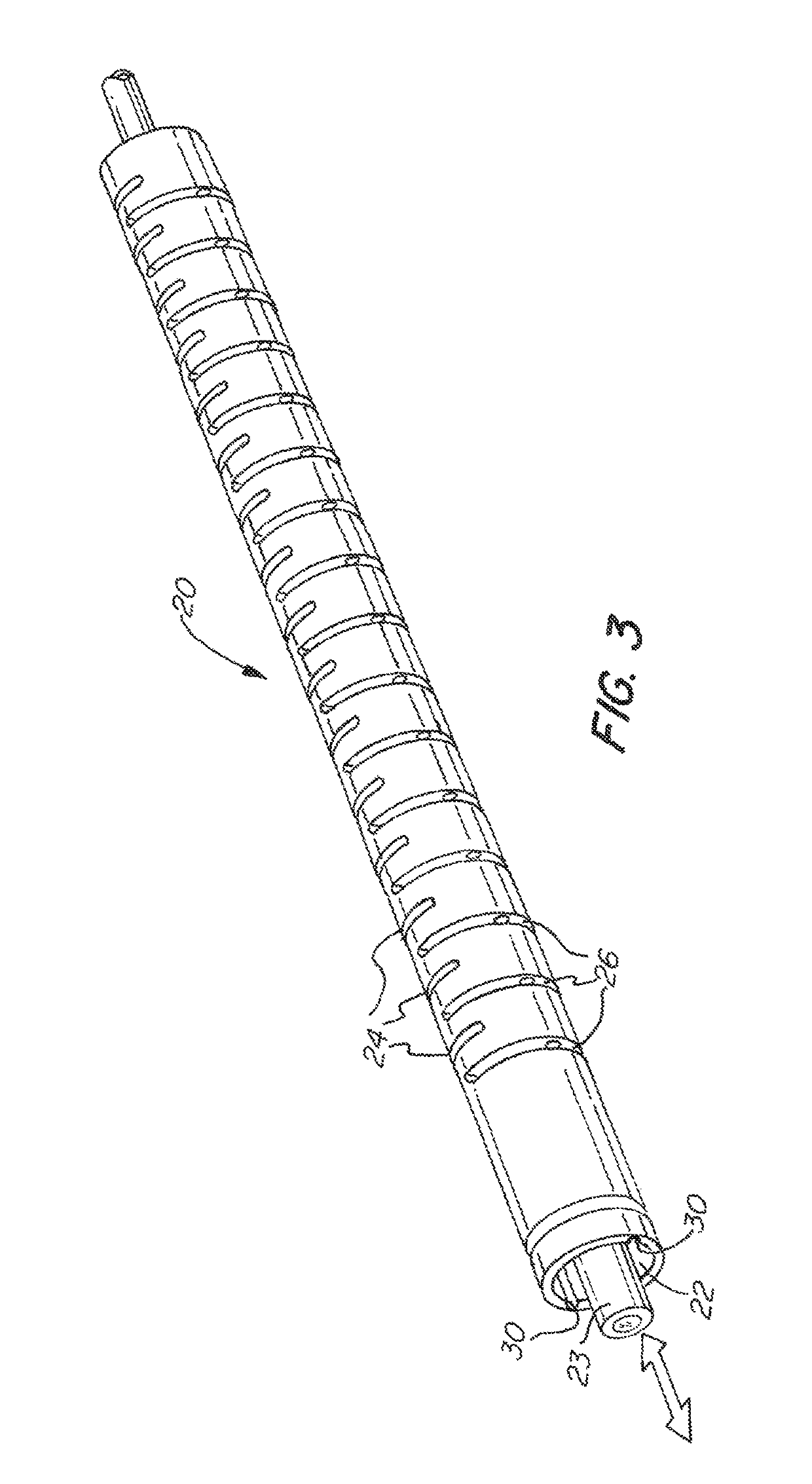Steerable catheter with flexing tip member
a catheter and tip technology, applied in the field of catheters with flexing tip members, can solve the problems of large outer diameters, large reusable and expensive resources of endoscopes and endoscopic equipment systems, and inability to move, etc., and achieve the effects of low cost, high accuracy, and simple us
- Summary
- Abstract
- Description
- Claims
- Application Information
AI Technical Summary
Benefits of technology
Problems solved by technology
Method used
Image
Examples
Embodiment Construction
[0074]The basic components of one embodiment of a steerable catheter device in accordance with the invention are illustrated in FIG. 1. As used in the description, the terms “top,”“bottom,”“above,”“below,”“over,”“under,”“above,”“beneath,”“on top,”“underneath,”“up,”“down,”“upper,”“lower,”“front,”“rear,”“back,”“forward” and “backward” refer to the objects referenced when in the orientation illustrated in the drawings, which orientation is not necessary for achieving the objects of the invention.
[0075]As shown in FIG. 1, a steerable catheter, generally indicated at reference character (10), includes an elongated catheter body (12) having a proximal end (16) and a distal end (14). The catheter body (12) has a generally cylindrical body with an inner lumen. The catheter body (12) has a longitudinal axis (X-X) along which the length of the catheter body is defined.
[0076]The elongated catheter body (12) may be constructed from any suitable rigid or semi-rigid material, such as, for example...
PUM
 Login to View More
Login to View More Abstract
Description
Claims
Application Information
 Login to View More
Login to View More - R&D
- Intellectual Property
- Life Sciences
- Materials
- Tech Scout
- Unparalleled Data Quality
- Higher Quality Content
- 60% Fewer Hallucinations
Browse by: Latest US Patents, China's latest patents, Technical Efficacy Thesaurus, Application Domain, Technology Topic, Popular Technical Reports.
© 2025 PatSnap. All rights reserved.Legal|Privacy policy|Modern Slavery Act Transparency Statement|Sitemap|About US| Contact US: help@patsnap.com



